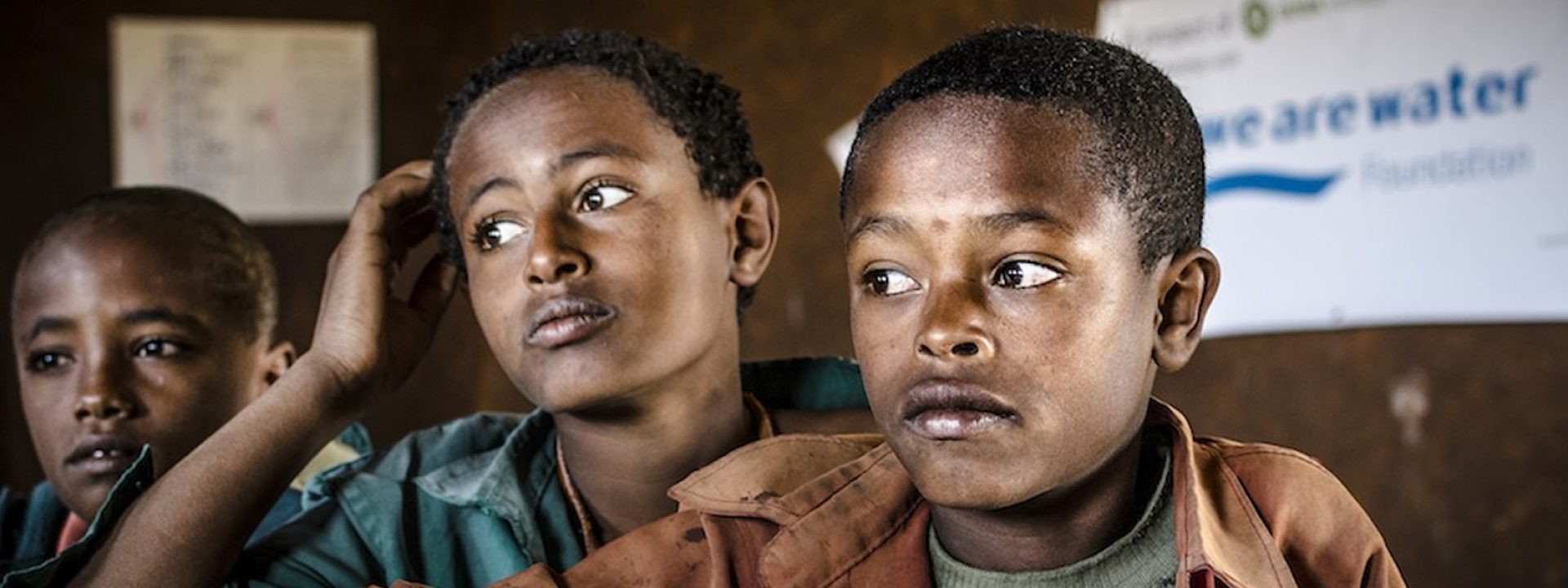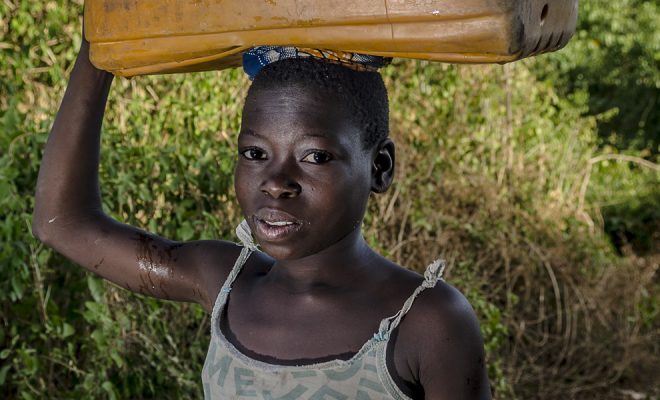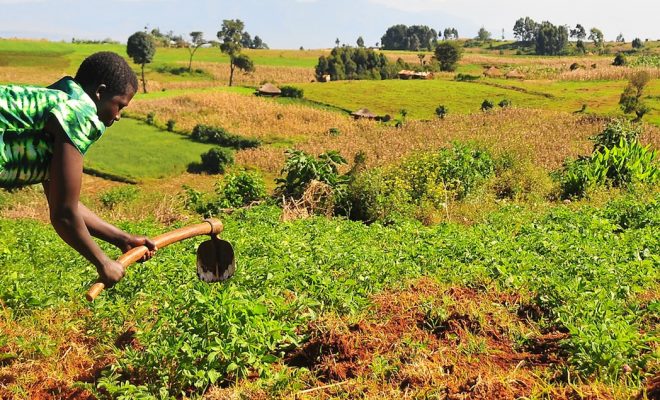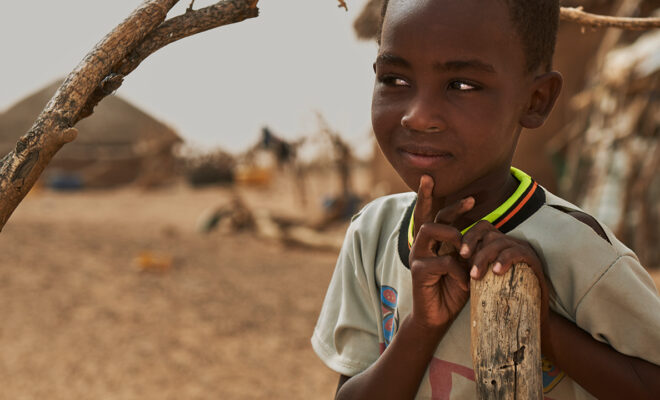Global warming will be very unfair: it will devastate the areas that are already suffering water stress. The subsequent food insecurity will continue the same geographic path, along with infectious diseases and the lack of schooling. But injustice will not only be present between the rich and the poor, but also between generations: the younger ones will be more vulnerable.
Are schoolchildren aware of how difficult it may become to have access to water in the future? The boy and girls in our planet experience opposite realities depending on where they live and have therefore a different awareness and consciousness. In the video A day in the life of a child, winner of the second edition of the We Art Water Film Festival in the Animation category, the authors, Miguel and Rocío, show the enormous contrast between the lifestyle of two girls in two distant latitudes.
The girl in the country where it rains does not know anything about the shortage of water, it is inconceivable for her not to be able to access this vital resource. She opens the tap and takes a shower, she is thirsty and opens the fridge. The lack of water is a daily occurrence for the other girl, she needs to walk many kilometres to find it and then needs to transport it to her home. She does not know a world where water is within her reach.
For the first girl, the main problem regarding water is its pollution. Her parents and teachers have explained to her that water is polluted chemically. And she may pollute it when she pours products resulting from her daily consumption into the water. For the second girl, the pollution of water is an additional problem to its shortage, and in many cases this pollution is also faecal, due to the lack of sanitation.
The girl in the country with access to water fights against its pollution by following very simple norms: never throw chemical products or residues into the toilet, control the use of medicines, of detergents, of toothpaste… The girl without access to water does not consume the polluting products the girl in the neighbouring continent does. If she contaminates it is due to a lack of suitable sanitation.
The first girl lives in a society with managers, sanitary controls and technological research and development departments to guarantee the healthiness of water. The health guarantees are not always reliable for the other girl. She lives in an environment with many endemic infectious diseases due to the chemical and faecal pollution of water.
The first girl was born with a life expectancy over 80 years. That of the second one does not reach 50.
Climate change may cause the winters of the girls in developed countries to be warmer, while summers become hotter. They will have less snow in their mountains and perhaps coastal cities will be affected by the rise of the sea level. Depending on the latitude they live in they might start having serious problems of water resources, but their countries will have enough funds and technology to obtain water from the sea and recycle it.
Climate change is a threat for the survival of the other girls. The little water they have could disappear, their land would have no crops and no pasture and –this is already happening- they would need to emigrate with their parents. According to UNICEF, 175 million children will be affected by climate change in the next decade and they will need to survive in an environment with less water resources and greater food insecurity. All of them and 88% of the teenagers around the world (10 to 19 years old) live in developing countries, which are the most vulnerable to the increase in temperature, to drought and violent meteorological phenomena.
Agents of a solution
The first girl lives in a society that has been educating schoolchildren in the solidarity and respect for the environment for many years. Solidarity with their schoolmates who live thousands of kilometres away; respect for the environment to save the planet and so that everyone has access to water.
For those boys and girls without water, education means survival; it is the only tool that might empower them to manage their future. They need to become agents for change: they need to learn natural sciences, social sciences and liberal arts in order to understand the principles of sustainable development, technology to have access to water, hygiene to avoid getting sick… knowledge that will provide them resilience to adapt. They will convey everything they learn at school to their parents, thus creating a new social culture that is able to thrive in a hostile environment where water, which is already in short supply, will be even scarcer.
In this video, shot at the project of the We Are Water Foundation in schools in Bolivia in collaboration with UNICEF, you may see how, with decent schools and education, it is possible to turn schoolchildren into powerful social agents for change. We need them and the investment in education is vital.
UNICEF has developed the project Child-Friendly Schools that influences this approach directly and considers education as the base of all actions. In the document Climate Change and Environmental Education you may learn how the United Nations Children´s Fund lays out these education goals for schoolchildren in the areas that are most threatened by global warming and the lack of water and sanitation. The document is a real manual to face the essential access to knowledge that affects not only schoolchildren but also teachers, making it vital to have decent and capable premises, coherent with the concepts of sustainability taught inside them; concepts that govern the aid programmes for schools of the We Are Water Foundation.





